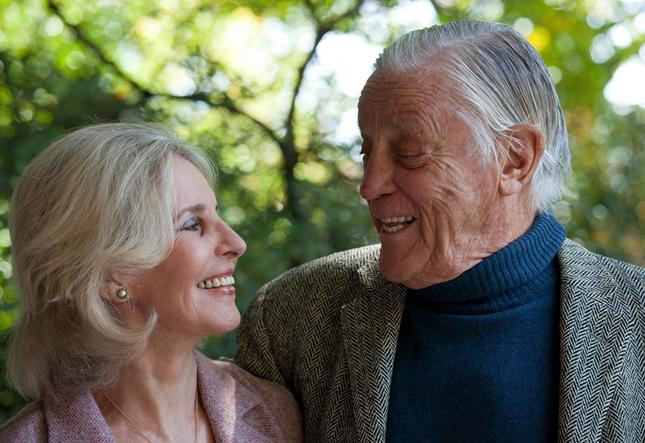Ben Bradlee, Lion of American Journalism, Dies at 93
By • October 22, 2015 0 2674

He looked every inch the man who was executive editor of the Washington Post, the powerful newspaper which brought down Richard Nixon, the President of the United States.
There are a myriad of photographs of Ben Bradlee in the newsroom—sometimes feet up on a table, the high-end striped shirt, the suspenders, the aristocratic-but-craggy handsome face, the gray hair, the kinetic look—that document the years of Watergate, when Bradlee, backed up by publisher Katharine Graham, trusting and pushing the work and harried investigation of young reporters Bob Woodward and Carl Bernstein, snared the Watergate scandal and rode it all the way to the president’s resignation and beyond. Jason Robards, who played Bradlee in the film version of “All The President’s Men,” had nothing on him.
Born on Aug. 26, 1921, Benjamin Crowninshield “Ben” Bradlee, who had gone into hospice in the past few weeks, died at his home Oct. 21 at the age of 93.
The images and what he and the Washington Post accomplished in those times will endure just about forever for as long as there are newspapers, or in the future, files and folders of newspapers on the internet.
His memory endures in Georgetown, where he and his wife Sally Quinn and son Quinn Bradlee made their home, where they graced the covers of our publication, and where they were large presences in the village at their N Street residence.
Like Graham, Bradlee died on The Georgetowner’s deadline night, Tuesday, prompting editors to change pages at the last moment before sending final pages to the printer.
His wife was a star reporter, often for the Style section, an innovation which Bradlee turned from the women’s pages to a lively, readable section, full of lively, stylized writing by gifted writers.
In many ways, he had some of the quality and back story of his friend, John F. Kennedy, both Boston-raised, U.S. Navy heroes and combatants in World War II in the Pacific. Both had aristocratic style, mixed in with sometimes profane Hemingway-style manly and intellectual cool. Both lived in Georgetown—on N Street. They had a way about them. Women found them more than attractive. Men wanted to work with and for them, and to be like them.
When Bradlee became top editor, he and Graham — by hiring well, hanging tough, and pursuing their goals as journalistic holy grails — pushed the Washington Post into the forefront of national newspapers alongside the New York Times.
He called his autobiography “A Good Life: Newspapering and Other Adventures.” Bradlee could have called it a wonderful life, but we can be sure that goes without saying. He had style and gravitas, and he was loved by friends and family and respected in the village and honored by his peers. A good life, indeed.
- Sally Quinn and Ben Bradlee at their N Street home in Georgetown. | Photo by Jeff Malet.



